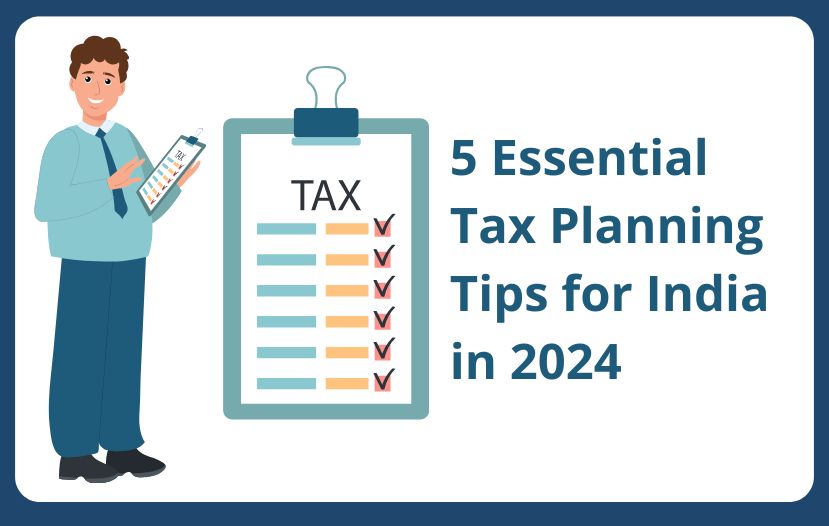Learn how you can refine tax planning with our simple strategies. Save money on taxes and maximize your net income!


A lot of thought goes behind tax planning which can often get confusing when you are looking for the best route to take. The Indian taxpayer has been through multiple changes in tax laws and traversing through them can get quite tricky. With each financial year bringing in new changes, you need to know about these developments to plan your taxes effectively.
There are tax brackets set by the government according to your income. Needless to say, you should be aware of where you fall, to plan for your taxes. The tax brackets for individuals are as follows:
Low-Income Group: Individuals earning up to ₹2.5 lakh per year are exempt from income tax under the basic exemption limit.
Middle-Income Group: Individuals earning between ₹2.5 lakh and ₹5 lakh per year fall into the 5% tax bracket. They can also avail a rebate of up to ₹12,500 under Section 87A of the Income Tax Act.
High-Income Group: Individuals earning over ₹5 lakh per year are in higher tax bands. The applicable tax rates increase progressively with income, ranging from 20% to 30%.
Now that you are equipped with the knowledge of where you fall in the tax brackets, let us enlighten you with 5 tips that will help your tax planning for FY 2024-25.
An accurate calculation of your taxable income won't just help you know your tax liabilities but also help in planning your investments better which in return will help you save on taxes. You may want to consider tax planning well in advance to avoid the last-minute bustle. Here's a step-by-step guide to estimating your taxable income:
Strategic investment and expense planning can help you save a lot on taxes. Some of the investments you can take advantage of are as follows:
Expense Management
Haphazard maintenance of your tax records will cause your tax planning to go haywire. Think about creating an organized system of tax records that includes information of your income, expenses, deductions, and investments. Having your tax documentation in one place will help you plan better for the coming years as you can assess areas where you can save more. The degree of errors is also reduced so you are safe from penalties and scrutiny from tax authorities.
Gather all relevant financial documents like salary slips, investment statements, bank statements, receipts, and tax-related correspondence. Categorize these documents systematically, either physically or digitally, for easy retrieval. You can create digital backups of important documents like property deeds by scanning them. The Income Tax Department requires a minimum retention period of 6 years for tax-related documents. So, keep a record of your tax-related documents for at least this period to ensure you can provide the necessary documentation.
Another great practice to keep your finances in order is to assess your tax liabilities regularly. You can set periodic schedules to have a look at what you owe the government to plan for your taxes. Online tax calculators can come in handy to help you estimate your tax burden. And learn from past tax returns to avoid any mistakes that could cause you to pay more than you need to. Being in the loop about any tax law changes by following newsletters or consulting tax experts never goes amiss while tax planning.
And to wrap it up, we advise you to always file your income tax returns on time. Filing your income tax return on time will help you avoid penalties and interest charges. And it ensures that you receive any refunds you may be eligible for. The Income Tax department has online e-filing portals that can make this an easy experience. Online filing allows you to save drafts, upload documents electronically, and track the status of your return. Don't hesitate to seek help from tax professionals if you have any queries or if your tax situation is complex.
Some parting thoughts…
We all love an extra coin in our pockets and planning for your taxes is the best way to go about it. Our guidelines for saving on taxes are simple yet very effective methods to maximize your net income. For personalized guidance and expert advice, consider consulting with JJ FinTax. Our tax advisors will help you tackle any complexity you may face during tax season. We can also help you in financial planning and budgeting, whether you're a business owner or an individual taxpayer. Connect with us today!

